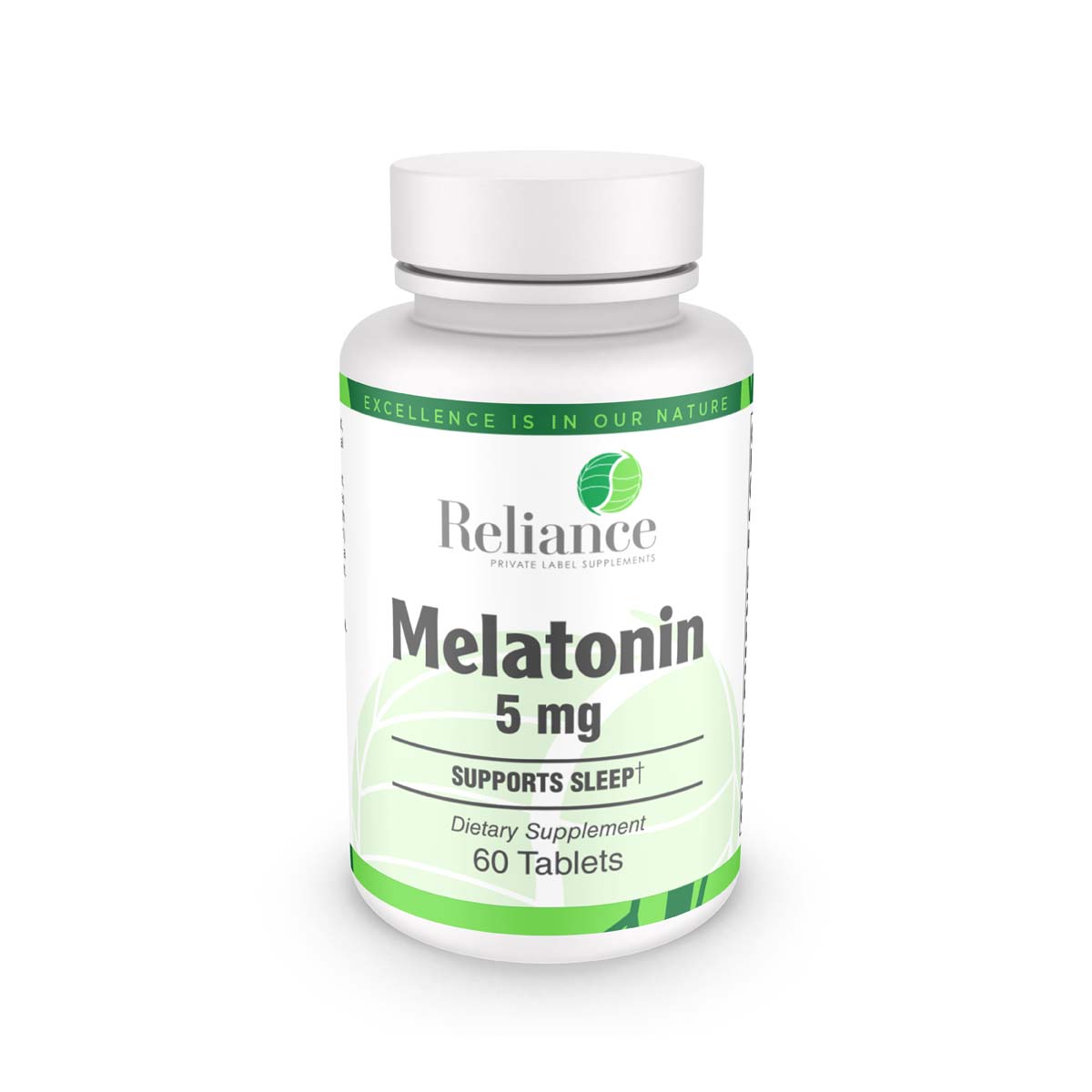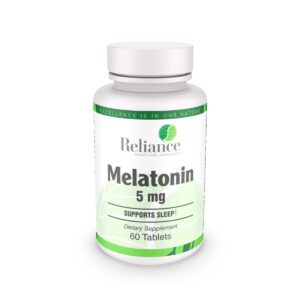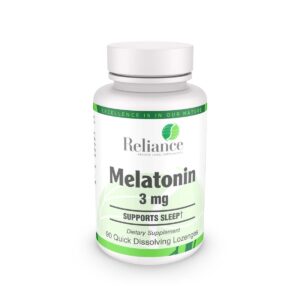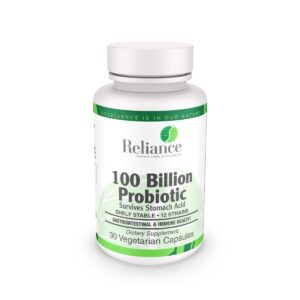Melatonin is a hormone that is secreted by a part of the brain called the pineal gland. The synthesis of melatonin begins with L-tryptophan which is converted into 5–HTP then to serotonin and then to melatonin. Production of melatonin is under the influence of part of the brain known as the hypothalamus. The hypothalamus receives information from the retina of the eye, about the daily patterns of light and dark. The result is the production of physiological and behavioral circadian rhythms. These circadian rhythms help control various functions in the body including the wake/sleep cycle.† The amount of melatonin produced varies; synthesis is increased in the dark and decreased in the light. As darkness approaches, melatonin production increases, helping prepare the body for sleep. Studies show that supplemental melatonin may help support a normal sleep cycle, help fight jet-lag, and in higher amounts provide antioxidant support.†
Features
- Non-animal source, as this is preferable to a bovine extract which is not as safe as it would typically be derived from bovine brain tissue. Bovine brain tissue is a BSE (Mad Cow Disease) risk.
- Pharmaceutical-grade melatonin.
-
Synergized with 10 mg of B6 for proper utilization.
Benefits
- Melatonin is a hormone secreted by the pineal gland when it is dark and has been shown to support a healthy sleep cycle especially in individuals who may have difficulty sleeping.†
- Melatonin is also a powerful antioxidant helping to neutralize several different types of free radicals such as the damaging hydroxyl radical, hydrogen peroxide, singlet oxygen, and peroxynitrite.†
- Melatonin helps support normal, healthy neurological and cardiovascular function.†
- It also plays a role in supporting normal, healthy immune function.†
- B6 plays an important role in the endogenous production of melatonin within the body.†






